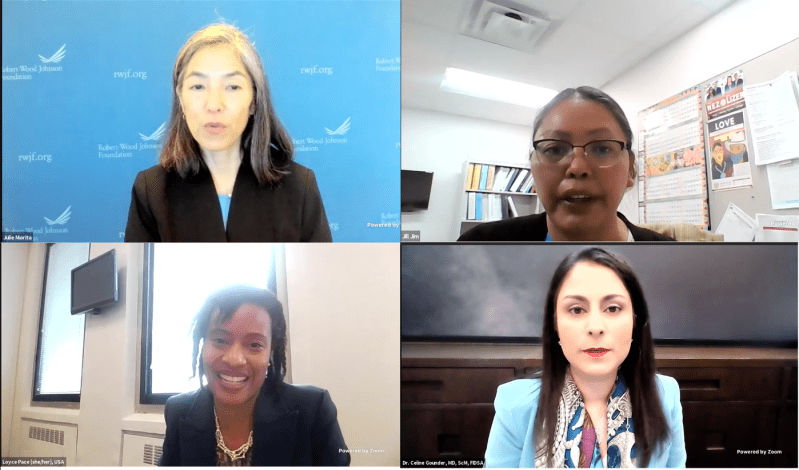Four women of color from the Biden-Harris Transition COVID-19 Advisory Board say women have been on the frontlines of the COVID-19 pandemic as educators, healthcare workers and caregivers, but they are rarely included in COVID-related decision-making in the United States.
The panelists at a Thursday event hosted by WomenLift Health might know this better than anyone: All four served on the Biden-Harris’s 16-member COVID-19 advisory board, made up of more than 50% people of color and including seven women.
Celine Gounder, clinical assistant professor of medicine and infectious diseases at the New York University Grossman School of Medicine, explained that there are gender differences in representation of healthcare professionals in the media.
“Only 30% of guests who were on-air commenting about coronavirus during the pandemic on television were women, and only 25% of the physicians were women,” she said. She added that while half of infectious disease researchers are women, only four women specializing in infectious diseases appeared on television in the primetime hours.
Gounder emphasized the value of media representation for women of color in the medical field. “I think there is an overlap in who ends up in these positions to advise and make decisions and who is in the media,” she said. “It really speaks to who we think is credible and who we should listen to.”
While women have not traditionally been included in healthcare decisions in the United States, this is not the case in all cultures, according to Jill Jim, the executive director of the Navajo Department of Health. For example, she said that in Navajo culture, women have long played a large role in Navajo traditions and culture as decision-makers because it is “heavily grounded in [their] values and teachings.”
Julie Morita, executive Vice President of the Robin Woods Johnson Foundation, added that there are immense systemic barriers to success for women across industries.
“Women have incredible value, and I look back and say, well, what are the barriers? What are the policies that are in place?” she asked. “What are the practices in place that really keep us from being able to contribute fully and to make us a better country?”
She also highlighted the consequence of systemic problems such as the absence of paid leave and its effects on women. According to WomenLift Health executive director Amie Batson, 2.3 million women left the workforce during the pandemic.
Loyce Pace ’99, the director of the Office of Global Affairs in the Department of Health and Human Services, said that it is also important to include people in leadership roles within the healthcare industry who do not necessarily have a medical degree but are “living and breathing this work” on the community level.
“There’s even more of us. People like me who are behind me and I would love to have them right beside me,” she said. “We need to have some permanence to how we include people.”
